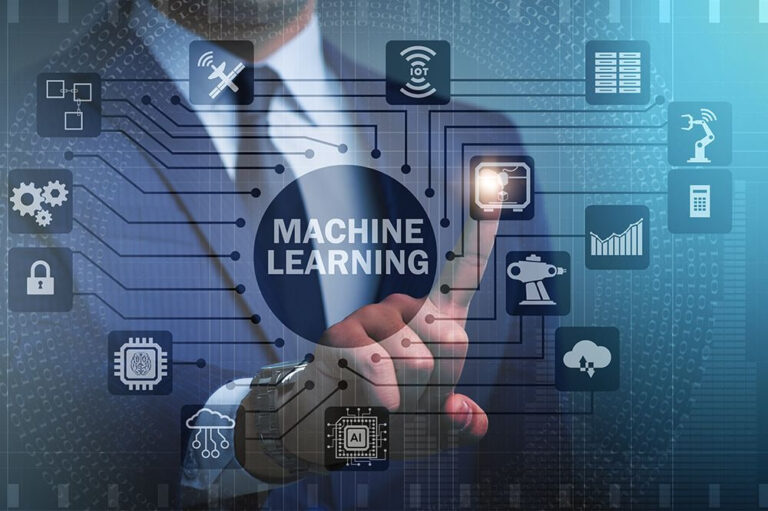Grafx-IT-Solutions
MACHINE LEARNING

- About
- Duration
Machine learning is a subset of artificial intelligence that enables computers to learn from data and improve performance on tasks without explicit programming. It involves the development of algorithms that allow systems to recognize patterns, make decisions, and improve over time through experience. Machine learning applications range from image and speech recognition to recommendation systems and predictive analytics. It plays a crucial role in various fields, including finance, healthcare, and marketing, by extracting meaningful insights from large datasets. The iterative learning process of machine learning contributes to its ability to adapt and enhance performance in diverse applications.
Length : 40 Hours
Course Content
- Introduction to Machine Learning:
- Definition and types of machine learning.
Overview of supervised, unsupervised, and reinforcement learning. - Mathematics and Statistics for Machine Learning:
- Linear algebra, calculus, and probability concepts.
Statistical methods for data analysis. - Data Preprocessing:
- Handling missing data and outliers.
Feature scaling and normalization.
Data encoding and transformation. - Supervised Learning:
- Regression: Linear regression, polynomial regression.
Classification: Logistic regression, decision trees, support vector machines.
Model evaluation and hyperparameter tuning. - Unsupervised Learning:
- Clustering: K-means, hierarchical clustering.
Dimensionality reduction: Principal Component Analysis (PCA), t-Distributed Stochastic Neighbor Embedding (t-SNE). - Neural Networks and Deep Learning:
- Introduction to artificial neural networks.
Building and training deep neural networks using frameworks like TensorFlow or PyTorch
- Natural Language Processing (NLP):
- Text processing and analysis.
Building NLP models for tasks like sentiment analysis and named entity recognition. - Reinforcement Learning:
- Basics of reinforcement learning.
Markov Decision Processes (MDPs), Q-learning, and policy gradient methods. - Model Deployment and Serving:
- Deploying machine learning models in real-world applications.
Integration with web services and APIs. - Ethical Considerations and Bias in Machine Learning:
- Understanding ethical implications of machine learning.
Addressing bias and fairness issues in model development. - Practical Projects:
- Hands-on projects to apply learned concepts.
Collaborative work on real-world datasets. - Case Studies and Industry Applications:
- Exploring real-world applications of machine learning in various industries.
Analyzing case studies to understand challenges and solutions.

